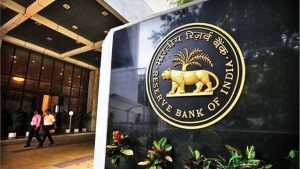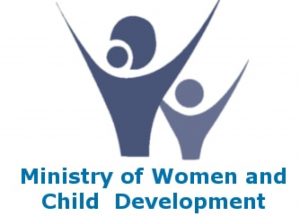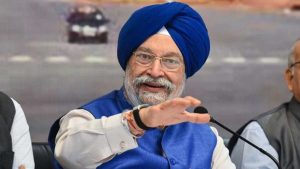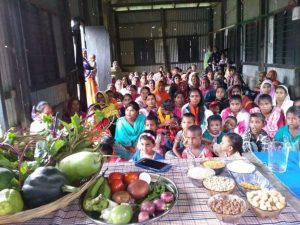 “Garib Kalyan Rojgar Abhiyaan” will be launched by the Government of India from Village Telihar, Block Beldaur of Khagaria District of Bihar. It is a massive rural public works scheme that will empower and offer livelihood opportunities to the returnee migrant workers as well as rural citizens. The programme will be joined by the villages across 116 districts in the six States through the Common Service Centres and Krishi Vigyan Kendras. The six states are: Uttar Pradesh, Madhya Pradesh, Rajasthan, Odisha, Jharkhand and Bihar. “Garib Kalyan Rojgar Abhiyaan” will be launched by the Government of India from Village Telihar, Block Beldaur of Khagaria District of Bihar. It is a massive rural public works scheme that will empower and offer livelihood opportunities to the returnee migrant workers as well as rural citizens. The programme will be joined by the villages across 116 districts in the six States through the Common Service Centres and Krishi Vigyan Kendras. The six states are: Uttar Pradesh, Madhya Pradesh, Rajasthan, Odisha, Jharkhand and Bihar. |
| “Garib Kalyan Rojgar Abhiyaan” will be 125 days long campaign and work in mission mode. It will be a coordinated effort between 12 different Ministries/Departments such as Rural Development, Panchayati Raj, Environment, Railways, Petroleum & Natural Gas, Road Transport & Highways, Mines, Drinking Water & Sanitation, Telecom, Agriculture, New & Renewable Energy, and Border Roads. The campaign will involve focused implementation of 25 different types of works which will provide employment to the migrant workers along with creation of infrastructure in the rural regions of the country, with a resource envelope of Rs 50,000 crore. |
 The Board of Insolvency and Bankruptcy Board of India (IBBI) has reconstituted the Advisory Committee on Corporate Insolvency Resolution & Liquidation. The Advisory Committee will be chaired by the Executive Vice Chairman and Managing Director, Kotak Mahindra Bank, Uday Kotak. Methil Unnikrishnan has been designated as the secretary to the Advisory Committee. The Advisory Committee on Corporate Insolvency Resolution & Liquidation comprises of 14 members including the Chairman. The committee will advise and provide professional support on a request from the Board of insolvency regulator, IBBI, or on its own volition on any matter relating to the Corporate Insolvency resolution and liquidation dealt with by the Board under the Insolvency and Bankruptcy Code 2016. The Board of Insolvency and Bankruptcy Board of India (IBBI) has reconstituted the Advisory Committee on Corporate Insolvency Resolution & Liquidation. The Advisory Committee will be chaired by the Executive Vice Chairman and Managing Director, Kotak Mahindra Bank, Uday Kotak. Methil Unnikrishnan has been designated as the secretary to the Advisory Committee. The Advisory Committee on Corporate Insolvency Resolution & Liquidation comprises of 14 members including the Chairman. The committee will advise and provide professional support on a request from the Board of insolvency regulator, IBBI, or on its own volition on any matter relating to the Corporate Insolvency resolution and liquidation dealt with by the Board under the Insolvency and Bankruptcy Code 2016. |
 An Internal Working Group (IWG) has been constituted by the Reserve Bank of India with a prime objective of reviewing the extant guidelines on ownership and corporate structure for Indian private sector banks. The Internal Working Group (IWG) will be headed by Dr. Prasanna Kumar Mohanty, Director, Central Board of RBI. The Internal Working Group (IWG) is supposed to submit its report by 30th September 2020. An Internal Working Group (IWG) has been constituted by the Reserve Bank of India with a prime objective of reviewing the extant guidelines on ownership and corporate structure for Indian private sector banks. The Internal Working Group (IWG) will be headed by Dr. Prasanna Kumar Mohanty, Director, Central Board of RBI. The Internal Working Group (IWG) is supposed to submit its report by 30th September 2020. |
About an Internal Working Group (IWG):
The Terms of Reference of the Internal Working Group is as follows:
|
Composition of the Internal Working Group:
The Internal Working Group (IWG) consists of 5 members:
|
 A task force has been constituted by the Government of India to evaluate issues related to Infant Mortality Rate, Maternal Mortality Rate, Total Fertility Rate, Sex Ratio at Birth, Child Sex Ratio (CSR) and any other issue that pertains to health as well as nutrition. It will also review the correlation of age of marriage and motherhood along with health, medical well being and nutritional status of mother and child, during pregnancy & birth. The task force has been set up by the Women and Child Development Ministry and will be headed by Jaya Jaitly. Jaya Jaitly headed 10 member task force will propose appropriate legislations and amendments in the present laws. It will also chalk out a comprehensive roll-out plan with timelines to implement these recommendations. The task force would also be responsible for promoting higher education among women. A task force has been constituted by the Government of India to evaluate issues related to Infant Mortality Rate, Maternal Mortality Rate, Total Fertility Rate, Sex Ratio at Birth, Child Sex Ratio (CSR) and any other issue that pertains to health as well as nutrition. It will also review the correlation of age of marriage and motherhood along with health, medical well being and nutritional status of mother and child, during pregnancy & birth. The task force has been set up by the Women and Child Development Ministry and will be headed by Jaya Jaitly. Jaya Jaitly headed 10 member task force will propose appropriate legislations and amendments in the present laws. It will also chalk out a comprehensive roll-out plan with timelines to implement these recommendations. The task force would also be responsible for promoting higher education among women. |
 “PM SVANidhi” is a Special Micro-Credit Facility Scheme that has been launched by the Ministry of Housing and Urban Affairs. Street vendors will be provided affordable loans under the PM Street Vendor’s Atma Nirbhar Nidhi (PM SVANidhi) scheme, hence enabling them to resume work and earn livelihoods. The scheme is expected to benefit over 50 lakh people including hawkers, thelewalas, vendors, rehriwala etc. Under the PM SVANidhi scheme, street vendors will be able to avail the working capital loan of up to Rs. 10,000, which is repayable in monthly instalments in the tenure of one year. A digital platform with web portal/ mobile app would be developed to administer the scheme with end-to-end solution. It will also help in integrating the vendors into the formal financial system. “PM SVANidhi” is a Special Micro-Credit Facility Scheme that has been launched by the Ministry of Housing and Urban Affairs. Street vendors will be provided affordable loans under the PM Street Vendor’s Atma Nirbhar Nidhi (PM SVANidhi) scheme, hence enabling them to resume work and earn livelihoods. The scheme is expected to benefit over 50 lakh people including hawkers, thelewalas, vendors, rehriwala etc. Under the PM SVANidhi scheme, street vendors will be able to avail the working capital loan of up to Rs. 10,000, which is repayable in monthly instalments in the tenure of one year. A digital platform with web portal/ mobile app would be developed to administer the scheme with end-to-end solution. It will also help in integrating the vendors into the formal financial system. |
 The Government of India has launched Kisan Credit Card (KCC) campaign for 1.5 crore Dairy Farmers. Under this campaign, GoI will provide Kisan Credit Card to 1.5 crore dairy farmers within the next two months i.e. from 1st June to 31st July 2020. KCC will be provided to those Dairy Farmers who belongs to the Milk Unions and Milk producing Companies. In the first phase of this campaign, the Government of India is planning to cover all farmers who are members of dairy cooperative societies and associated with different Milk Unions and who do not have KCC. The Government of India has launched Kisan Credit Card (KCC) campaign for 1.5 crore Dairy Farmers. Under this campaign, GoI will provide Kisan Credit Card to 1.5 crore dairy farmers within the next two months i.e. from 1st June to 31st July 2020. KCC will be provided to those Dairy Farmers who belongs to the Milk Unions and Milk producing Companies. In the first phase of this campaign, the Government of India is planning to cover all farmers who are members of dairy cooperative societies and associated with different Milk Unions and who do not have KCC. |
 The Ministry of Health and Family Welfare (MoHFW) has constituted a committee to reform the Drug Regulatory System. The committee comprises of 11 members including the senior health officials, scientists and representatives of the pharmaceutical industry. The committee is being headed by Rajesh Bhushan, Officer on Special Duty to the Union health minister. The committee has been tasked with examining the current drug regulatory system and to give recommendations for reforms in order to bring the system more efficient and to streamline it with global standards. It has also been tasked to examine the reports given by Parliamentary standing committee, Professor RR Choudhary Committee on clinical trials and SN Mishra Committee on qualification of DCGI. The Ministry of Health and Family Welfare (MoHFW) has constituted a committee to reform the Drug Regulatory System. The committee comprises of 11 members including the senior health officials, scientists and representatives of the pharmaceutical industry. The committee is being headed by Rajesh Bhushan, Officer on Special Duty to the Union health minister. The committee has been tasked with examining the current drug regulatory system and to give recommendations for reforms in order to bring the system more efficient and to streamline it with global standards. It has also been tasked to examine the reports given by Parliamentary standing committee, Professor RR Choudhary Committee on clinical trials and SN Mishra Committee on qualification of DCGI. |
 A scheme has been launched by the central governemnt for complete solarization of Konark Sun Temple and Konark town in Odisha. This scheme has been launched to develop the historical Sun Temple town of Konark as Surya Nagri. As a part of scheme, 10 Mega Watt grid connected solar project along with various solar off-grid applications such as solar trees and solar drinking water kiosks would be set up in the area. Odisha Renewable Energy Development Agency would be responsible for the implementation of this project. This scheme will ensure meeting all the energy requirements of Konark town with solar energy. For the execution of project, Government of India will provide a 100% Central Financial Assistance (CFA) support of around Rs 25 Crores through Ministry of New & Renewable Energy. A scheme has been launched by the central governemnt for complete solarization of Konark Sun Temple and Konark town in Odisha. This scheme has been launched to develop the historical Sun Temple town of Konark as Surya Nagri. As a part of scheme, 10 Mega Watt grid connected solar project along with various solar off-grid applications such as solar trees and solar drinking water kiosks would be set up in the area. Odisha Renewable Energy Development Agency would be responsible for the implementation of this project. This scheme will ensure meeting all the energy requirements of Konark town with solar energy. For the execution of project, Government of India will provide a 100% Central Financial Assistance (CFA) support of around Rs 25 Crores through Ministry of New & Renewable Energy. |
 The Central Government is implementing the flagship programme Poshan Abhiyan for improving the nutritional status of Indian citizens. This programme helps children, adolescents, pregnant women, and lactating mothers by leveraging technology. The importance of being given to the programme is evident from the fact that as many as 14 Central Departments and all the State Governments are being involved in the programme. Tamil Nadu tops the list of the states in terms of the number of participants in the programme. The Integrated Child Development Scheme has been in force for long in the southern state that has got rejuvenated with the Centre’s Poshan Abhiyaan mission. The programme is revitalizing India by reaching out to the children and mothers across the nation. The Central Government is implementing the flagship programme Poshan Abhiyan for improving the nutritional status of Indian citizens. This programme helps children, adolescents, pregnant women, and lactating mothers by leveraging technology. The importance of being given to the programme is evident from the fact that as many as 14 Central Departments and all the State Governments are being involved in the programme. Tamil Nadu tops the list of the states in terms of the number of participants in the programme. The Integrated Child Development Scheme has been in force for long in the southern state that has got rejuvenated with the Centre’s Poshan Abhiyaan mission. The programme is revitalizing India by reaching out to the children and mothers across the nation. |
 On March 8, 2020, the Union Environment Minister Prakash Javedekar announced that sanitary napkin disposal bags are to be made mandatory. On March 8, 2020, the Union Environment Minister Prakash Javedekar announced that sanitary napkin disposal bags are to be made mandatory. |
|
|
You need to login to perform this action.
You will be redirected in
3 sec
